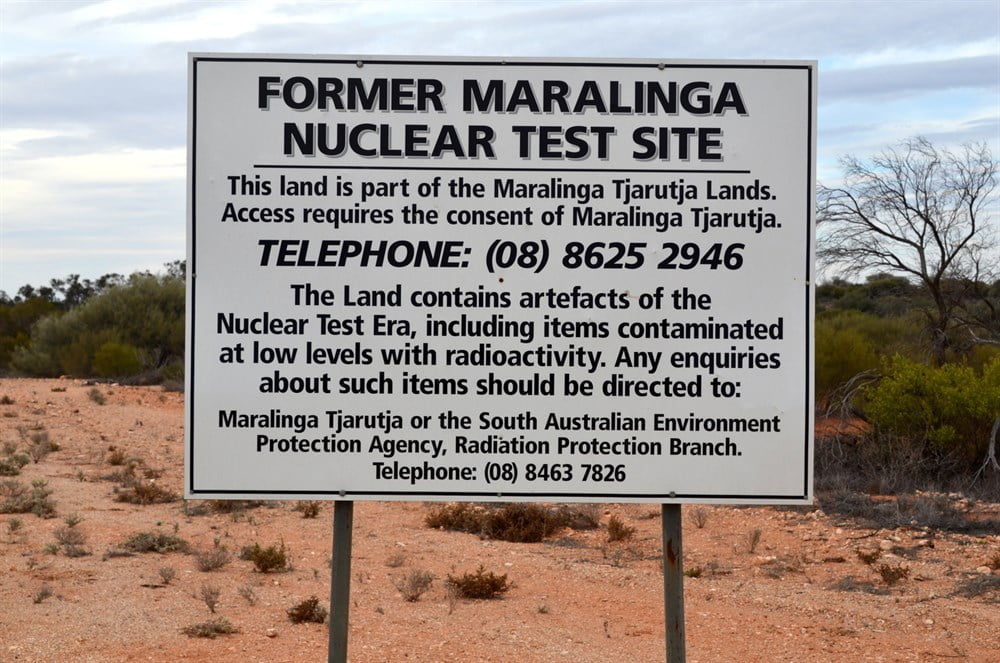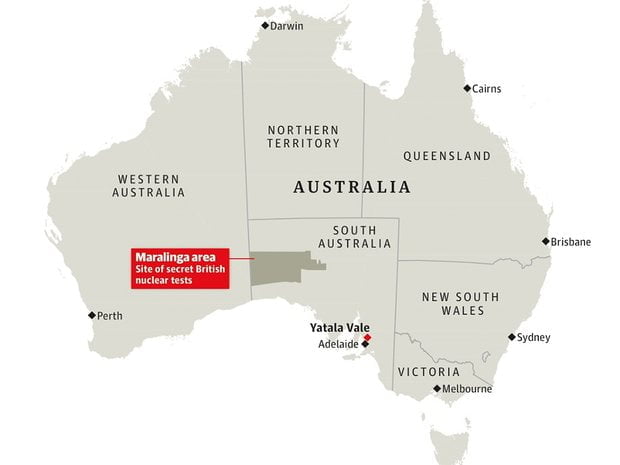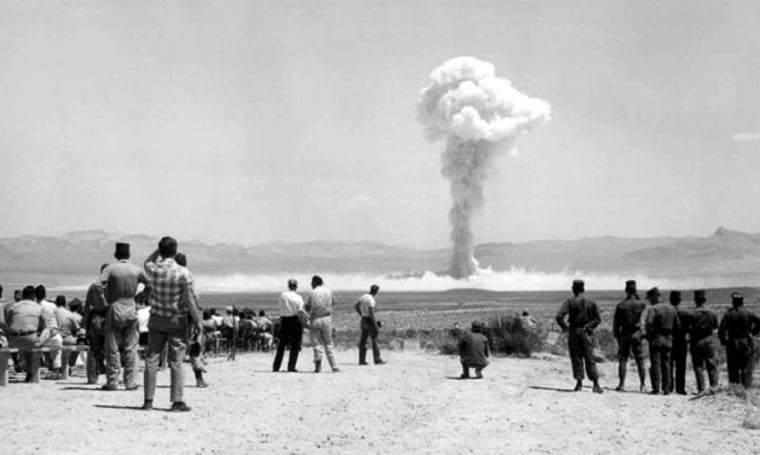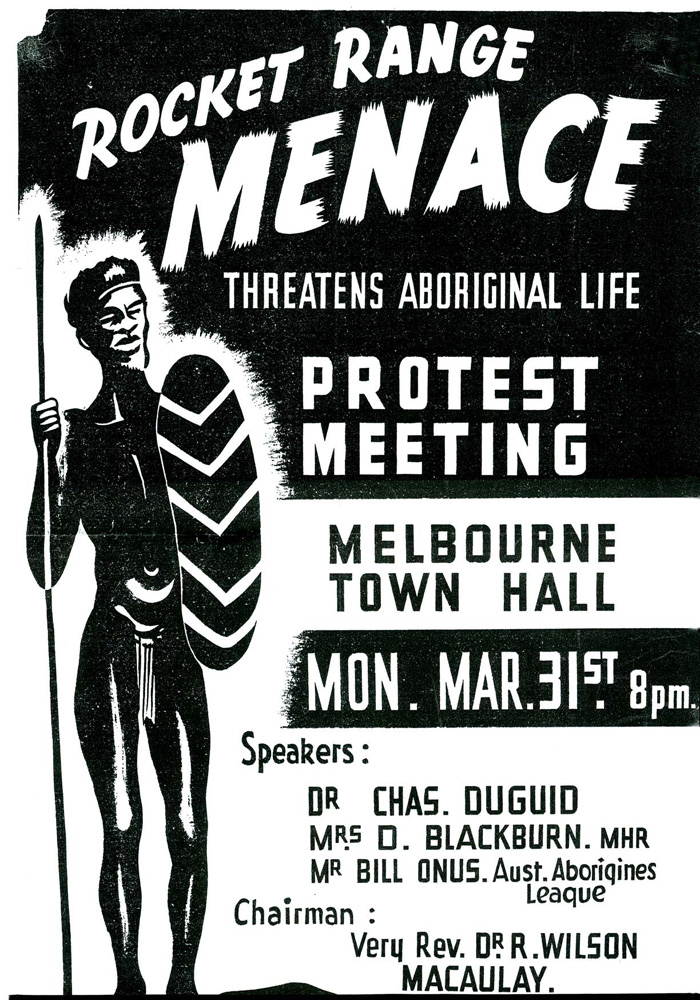What Happens When You Drop A Bomb On An Ancient Civilisation
In the novel Loreless I touch on a few major moments in modern Aboriginal history.
I do this by way of describing the fictional experiences of the ancestors of the protagonist Billy.
In each case I tried to put myself into the mind of the ancestor; the characters include Billy’s mother, grandfather and great-grandfather.
It was quite a time-consuming job to come up with a fictional family and ensure that their stories correlated with specific events in history.
My goal behind this, apart from giving Billy a back story, was to paint a picture of what indigenous people have had to go through over the past 150 years.
One of the first ideas I came up with was concerned one particularly unsavoury incident in Australia’s recent history. Namely the British nuclear tests in South Australia in the 1950’s.
In the middle of last century, the then Australian Prime Minister, Robert Menzies, was an extremely loyal monarchist. He went so far as to proclaimed himself “British to the bootstraps”.
He was also a staunch anti-Communist and made use of the Cold War to swing voters in his favour.
The decision, made solely by Menzies, to allow Britain to use large tracts of land in South Australia for nuclear tests, occurred in secret and without the knowledge of parliament.
His reckless actions ensured indeterminable suffering for not only indigenous people but also the servicemen who participated in the tests.
It also rendered vast areas of land uninhabitable.
While researching Loreless, I came across the story of an indigenous family who were discovered camping next to the detonation site of the one of the bombs.
This occurred in 1957 at a purpose-built testing ground north of Maralinga. The bombs exploded there were part of Operation Buffalo.
The government were aware that indigenous people regularly crossed and lived in the desert in central South Australia.
Indigenous people regularly trekked hundreds of kilometres to trade for goods not in their own area. They tended to move in small family groups.
Some of these journeys could take months or years to complete a full circuit depending on the prevailing seasons.
One man was given the job to patrol the interior, his name was Walter MacDougall.
He had already spent a lot of time with tribes in central Australia and had earned their respect.
Later he was given the assistance of a second-in-command. These two men were responsible for keeping an eye on thousands of square kilometres of land.
MacDougall did his best to try to prevent tribes from moving in the area, warning them that bad spirits were present. However, he could not be everywhere.
The warnings he issued to his superiors, about the presence of Aboriginal people, were also ignored.
He had a thankless job.
The story of the family living by the bomb crater became the centre point for Billy’s entire ancestor timeline.
I had to imagine what it must have been like for a someone who had experienced limited contact with the modern world.
The crater would have been something foreign for a man who knew every inch of the desert, especially because of its construction.
Due to the heat of the blast, the sand had turned to glass and rains had then filled the crater. It would have been an oddity, there were no permanent water sources above the ground in that part the desert.
He may have heard the sound of the explosion. Other Aboriginal people in the area also spoke of a black mist and the ground covered in a sort of oil.
When the family were discovered they were taken away in a car, also a first. Not surprisingly, they became carsick.
They were then showered and decontaminated. Water was a precious commodity which was never used for washing. All this must have been deeply disturbing.
Following this they were transferred to a mission far from their tribal lands.
To top it off, their dogs were shot and the most distressing of all the man’s wife, who was pregnant at the time, lost her unborn child.
Fortunately, the patrol reports from Walter MacDougall still exist and are online for anyone to read. One man can make a difference.
The reports are sketchy at most but may prove helpful for people researching their ancestors.
I must emphasise that the novel does not solely deal with the negative impact on Aboriginal people.
Australian indigenous culture and people are remarkably tenacious and have survived all manner of atrocities. Yet they are still going strong.
Writing Loreless was my way of making sense of it all and hopefully inspiring other people to uncover what still is a vibrant culture.
I hope you will be encouraged to read the book.
Have you made any astounding historical discoveries lately?
Leave a comment below or join the mailing list and let me know.




I like the way you write and you just educated me on a piece of my Australian history :). My heart breaks when I think of what our traditional owners have been through. What a different world we inhabit ….
Thanks Janine, glad you like the writing. Yes, some pretty terrible things happened.
The strange thing is I originally came across this story in a documentary about the nuclear tests on YouTube. This led me to Walter MacDougall and most surprising of all his original patrol reports which confirmed the story.